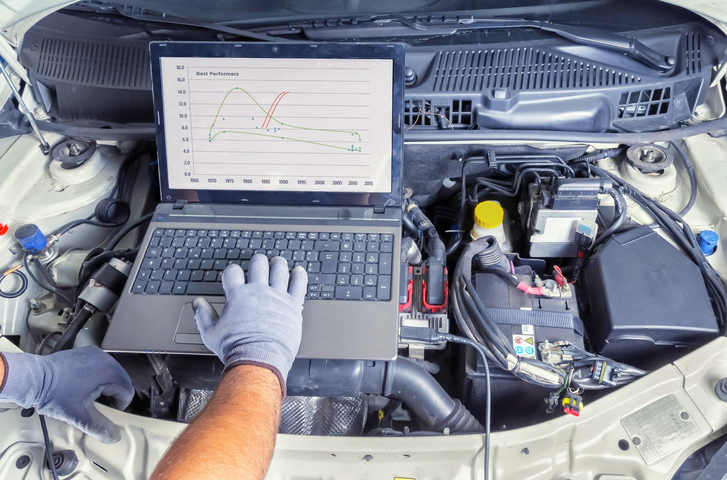Exploring Careers in the Auto Industry? All Your Questions About Working in Repair Shops, Answered

If you’re exploring careers in the auto industry, you’re probably excited to get started in a rewarding field that you’re passionate about. The auto industry is a vast market with a wide range of career opportunities, allowing you to pick a specialization that interests you.
Skilled auto technicians working in repair shops are both qualified and certified to inspect cars after collisions, and offer the best plan of action for getting the vehicle roadworthy. These repair shop employees work to patch, replace, and repair any damage to an auto body, making sure the customer is satisfied with their solutions. Read on to learn all about the ins and outs of working in repair shops.
How to Choose an Auto Repair Shop
There are two main options of repair shops that may interest you after completing automotive college. These shops generally differ in their pay structure and the types of vehicles they service.
The first common option for new technicians starting their career is a local, individually owned shop. One major benefit of working at a locally owned shop is that they usually opt to pay a base hourly rate, no matter what work is present or available to the technician. This can be especially helpful on slow days or during slower seasons, ensuring that the mechanic is paid a base rate for the number of hours spent in the shop.
The type of cars found at a local shop may not be as luxurious as you’d find in the other common option – a dealership repair shop. Working on luxury cars is a benefit to working at a dealership, as they tend to elicit higher pay for the labor compared to a standard non luxury brand. Dealerships may also pay a higher hourly rate, but only pay the mechanic for the hours working on the car, leaving the pay dependent on the amount of work available on a given day.

What to Expect While Working in a Repair Shop After Mechanic School
An average day for a technician that has completed mechanic school would include diagnosing problems or complaints that clients have about their cars. After diagnosing, the actual repairs are addressed and the technician works to carefully fix each problem. Ultimately when a vehicle comes into the shop, the mechanic must figure out why the vehicle is there and what must be done to get it back on the road.
Once an auto body repair technician diagnoses the problem with the vehicle, they have to get price quotes for the parts needed to complete the repair, as well as estimated labor costs. Then comes communicating with the customer and getting the go ahead to start working on the issue. Once the job is complete, the technician will go over what was worked on with the customer and why the repairs were successful in fixing the problem.
Each day that the repair shop opens, you won’t know what you’re going to see. Some days are filled with nonstop clients with complex issues, and other days are slower with common issues that are quick fixes. This is what keeps a career in a repair shop rewarding, as the difference in pace and tasks can be highly motivating.

Work-Life Balance as a Technician in a Repair Shop
The good work-life balance reported by many mechanics comes from the ability to work day shifts only, ensuring that they have evenings off to spend with family or for leisure. Having time to spend with friends and family outside of work contributes greatly to career satisfaction in this field. Working in a repair shop doesn’t require more hours than the average 40 hour work week, creating a great balance between work and leisure.
Another factor contributing to contentment while working in a repair shop is the ability to continue to climb the ladder of success. As technicians gain experience, they are able to negotiate higher wage rates and more advanced job roles. Their work ethic and education are directly rewarded with increased pay and more responsibility at their job. Some technicians even move forward with starting their own business, finding success as an owner and operator of their own shop.
Interested in careers in the auto industry?
Contact CATI today for more information!
